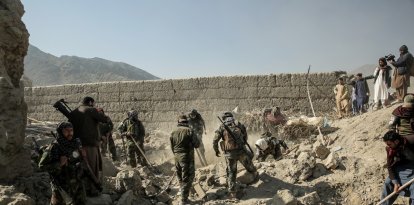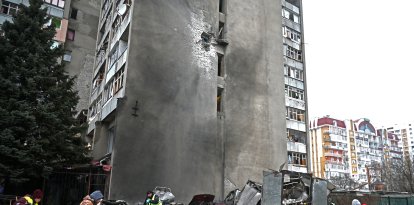Israel braces for "imminent" Iranian attack as U.S. installs cease-fire in Gaza
The urgency of the threat prompted Gen. Michael Kurilla, CENTCOM commander, to coordinate Israel's defense and strengthen collaboration with allies.

Israeli army during operations in the Gaza Strip.
Israel is on high alert in the face of the threat of an "imminent" attack by Iran and regional militias, in retaliation for the recent assassinations of senior Hezbollah and Hamas officials. The U.S. is also preparing, sending defensive reinforcements to the region and pushing for a cease-fire agreement in Gaza.
Iranian and Hezbollah leaders have vowed to avenge last week's assassinations in Beirut and Tehran, warning that attacks are coming. Israeli officials anticipate that any retaliation could be simultaneous, involving Hezbollah in Lebanon, the Huthis in Yemen and Iran itself.
During a cabinet meeting this Sunday, Israeli Prime Minister Benjamin Netanyahu said, "Israel is in a multifront war against Iran’s axis of evil. We are striking every one of its arms with great force. We are prepared for any scenario – both offensively and defensively."
Arrival of General Michael Kurilla
Both Israeli and U.S. officials have indicated that the attack by Iran could occur as soon as Monday. The urgency of the threat has prompted Gen. Michael Kurilla, commander of U.S. Central Command (CENTCOM), to manage from Israel the defense of the Jewish state and consolidate a common posture among allies.
According to a report by Axios, which cites two U.S. officials, General Kurilla's visit is primarily intended to strengthen alliances in the Middle East. The intention is to coordinate efforts to prevent any imminent attack from Iran.
U.S. strategic moves.
The United States has deployed a squadron of fighter jets and maintains an aircraft carrier near the region to assist in Israel's defense. In addition, U.S. Deputy National Security Advisor Jon Finer has urged both sides to "return to the negotiating table" to reach a cease-fire in Gaza.
Israel's defense strategies.
In Israel, measures have been taken to confuse possible attacks, including GPS systems that inform Tel Aviv residents that they are in Beirut. In addition, the cabinet has received satellite phones to ensure communications in case of disruptions during bombings or cyberattacks. Numerous foreign airlines have suspended flights to and from Israel, leaving tens of thousands of Israelis stranded abroad. El Al, the national airline, is trying to add more flights and the use of ships to repatriate citizens has been considered.

























